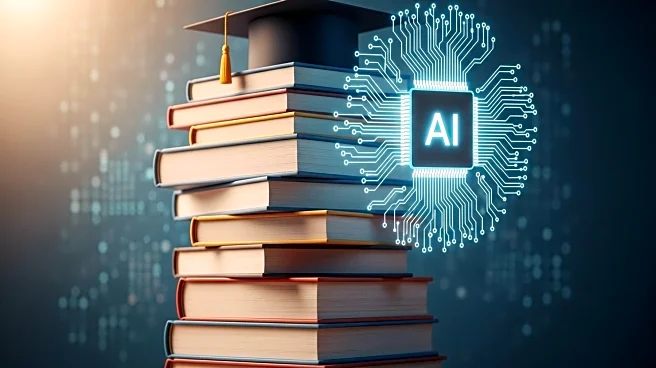What is the story about?
What's Happening?
A new UNESCO report highlights the potential risks of artificial intelligence (AI) in education, warning that without robust safeguards, AI could exacerbate human rights issues and deepen educational inequality. The report emphasizes the need for AI and digital technologies to be anchored in human rights, urging governments to focus on people rather than technology. Despite the digitalization of education, significant connectivity gaps remain, with nearly one-third of the global population lacking internet access. The report also identifies a persistent digital skills gender gap, with women being 25% less likely to use digital technologies for basic purposes compared to men. UNESCO calls for urgent efforts to ensure affordable internet access and the provision of digital devices to bridge these gaps.
Why It's Important?
The report underscores the critical role of digital tools in reshaping education, while also highlighting the risks of minimizing the human component in learning. The potential for AI to improve education is significant, but without ethical guidelines and safeguards, it could lead to increased inequality and privacy concerns. The call for affordable internet access and digital devices is crucial for ensuring equitable education opportunities. The report's emphasis on human rights and ethical AI deployment is vital for protecting learners' rights and ensuring that technology enhances rather than hinders educational outcomes.
What's Next?
UNESCO's report suggests the need for a rights-based digital transformation in education, built on coordination, content, capacity, connectivity, and cost. The organization calls for strong data protection measures, ethical frameworks, and inclusive access policies to safeguard learners' rights. Schools and educational agencies are advised to uphold privacy-first principles and protect student data from commercialization. The report also highlights the need for teacher training in digital competencies to effectively integrate AI into education.
Beyond the Headlines
The report explores the broader implications of AI in education, including the potential for cultural homogenization and the erosion of linguistic diversity. UNESCO urges educational agencies to ensure AI tools respect cultural diversity and foster inclusivity. The report also addresses the rise of cyber violence and the need for safeguards to protect students from online harm. By focusing on human-centered designs, the report aims to harness AI for equitable, high-quality education worldwide.

















